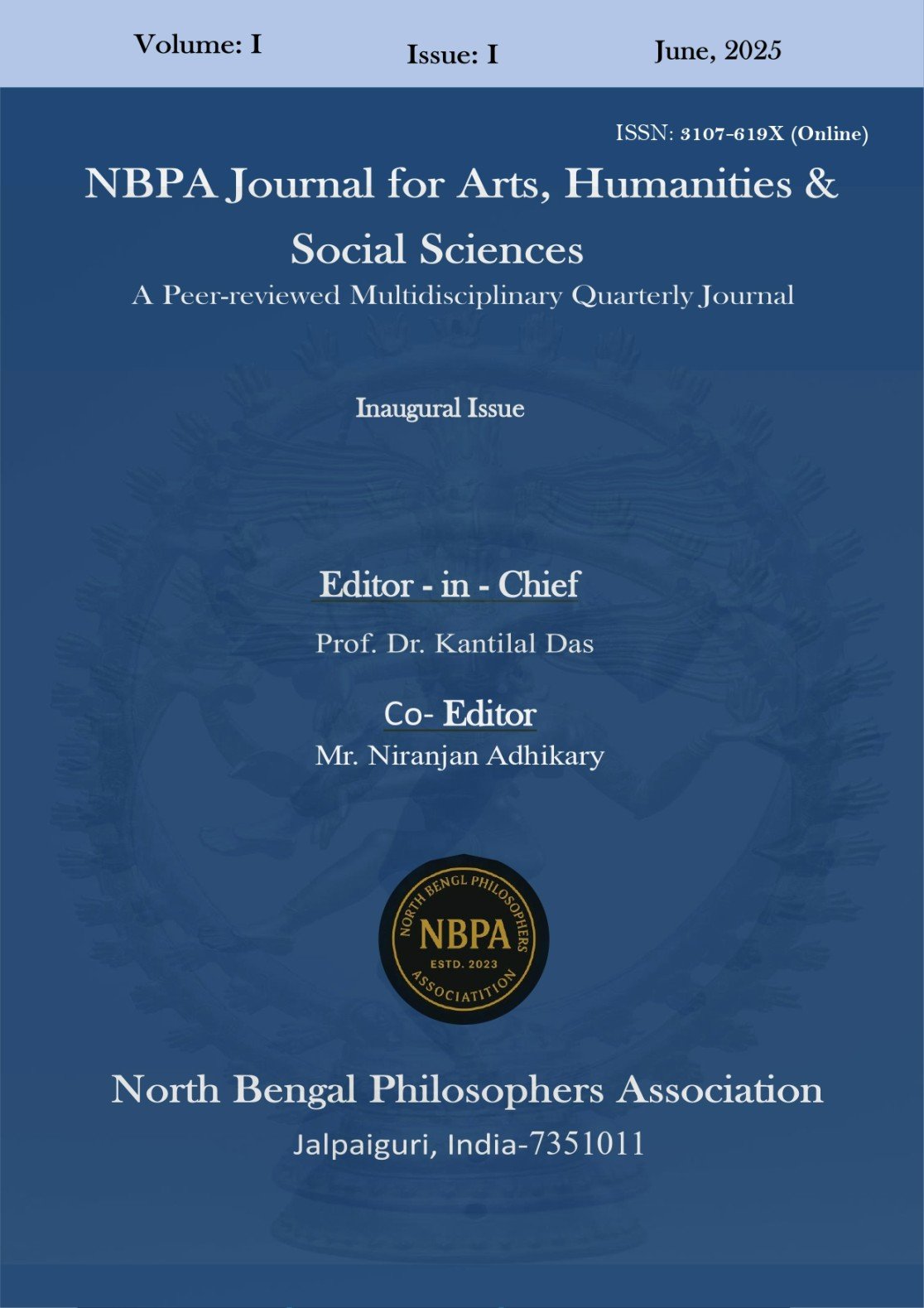The Path of Knowledge and the Depths of the Psyche: Jñānayoga through a Psychoanalytic Lens
DOI:
https://doi.org/10.65842/nbpa.v1.i1.007Keywords:
Jñānayoga, Psychoanalysis, Unconscious mind, Kṣetra and Kṣetrajña, Freudian theory, Spiritual wisdom, Transcendence and self-realizationAbstract
This paper explores the philosophical depth of Jñānayoga, the "Path of Knowledge," as presented in the Bhagavad Gītā and its intriguing parallels with psychoanalytic theories of the human psyche. Jñānayoga is a transformative journey of self-inquiry, guiding individuals to discern between the transient (body, mind, ego) and the eternal (Ātman, the true self). Lord Krishna’s distinction between the "field" (kṣetra) and the "knower of the field" (kṣetrajña) offers a framework for understanding the self beyond material existence, echoing psychoanalytic insights into the layers of human consciousness.
Drawing from Freudian and post-Freudian perspectives, this paper examines the intersections between the unconscious mind and the spiritual quest for ultimate knowledge. It argues that while psychoanalysis seeks self-awareness through introspection and uncovering repressed desires, Jñānayoga aspires to transcend the ego altogether, leading to self-realization and liberation (mokṣa). Furthermore, the study highlights the necessity of integrating wisdom with humility, detachment, and ethical living, demonstrating how Jñānayoga complements other yogic paths like Karma Yoga and Bhakti Yoga.
By juxtaposing Eastern metaphysical insights with Western psychological frameworks, this paper offers a comparative analysis of how both traditions address the fundamental question: Who am I? The discussion ultimately underscores the relevance of Jñānayoga not only as a spiritual discipline but also as a profound philosophical and psychological method for understanding the depths of human consciousness.
References
Bhattacharya, S. (1982). The philosophy of the Srimad-Bhagavata. Mahes Library.
Deutsch, E. (1969). Advaita Vedanta: A philosophical reconstruction. University of Hawaii Press.
Freud, S. (1953). The interpretation of dreams. Hogarth Press.
Freud, S. (1960). The ego and the id (J. Riviere, Trans.). W. W. Norton and Company.
Freud, S. (1961). Beyond the pleasure principle (J. Strachey, Trans.). W. W. Norton and Company.
Freud, S. (2000). Three essays on the theory of sexuality (J. Strachey, Trans.). Basic Books.
Jung, C. (1933). Modern man in search of a soul. Routledge and Kegan Paul.
Lacan, J. (1977). Ecrits: A selection (A. Sheridan, Trans.). Tavistock Publications.
Nakamura, H. (1983). A history of early Vedanta philosophy. Motilal Banarsidass.
Radhakrishnan, S. (1927). Indian philosophy (Vol. 2). Oxford University Press.
Sankaracarya. (1921). Vivekacudamani (Crest-jewel of discrimination) (Swami Madhavananda, Trans.). Advaita Ashrama.
Sankaracarya. (1984). Brahmasutra Bhasya (Swami Gambhirananda, Trans.). Advaita Ashrama.
Sankaracarya. (1996). Upadesa Sahasri (A. J. Alston, Trans.). Sri Satguru Publications.
Swami Nikhilananda (Trans.). (1975). Upanisads: Chandogya Upanisad, Brhadaranyaka Upanisad. Harper and Row.
Swami Sivananda (Trans.). (2000). Bhagavad Gita. Divine Life Society.

Downloads
Published
Issue
Section
License
Copyright (c) 2025 Dr. Bidur Mondal (Author)

This work is licensed under a Creative Commons Attribution-NonCommercial-NoDerivatives 4.0 International License.



